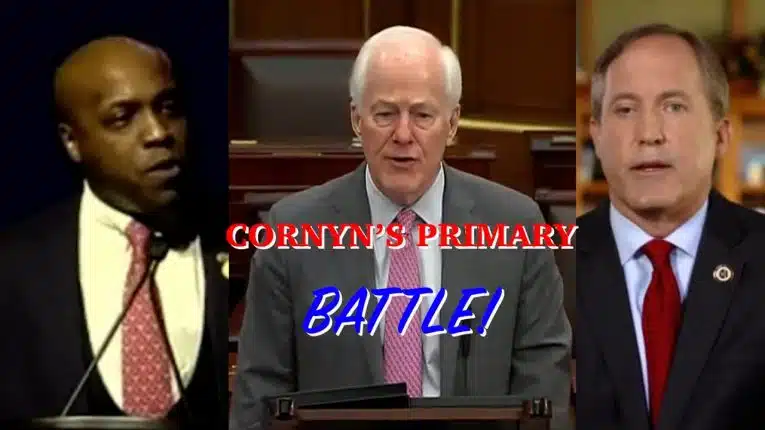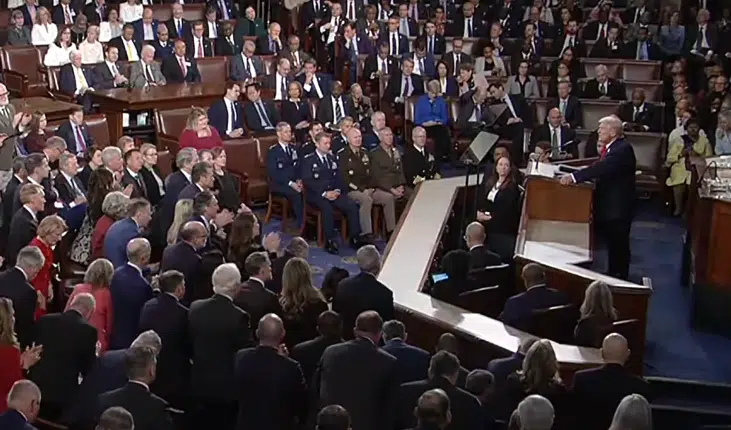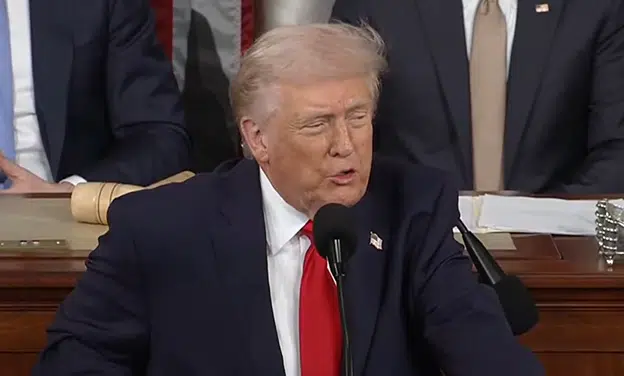 NRD Editor’s Note: This column was originally published at Forbes.com.
NRD Editor’s Note: This column was originally published at Forbes.com.
By Bill Wilson — In a city known for its perpetual evasion of responsibility and chronic shifting of blame, Washington D.C.’s sequester debate is more of the same — albeit with an interesting twist.
Ordinarily spending debates in our nation’s capital can be scripted long before they unfold: Democrats accused Republicans of “divisive,” harsh” and “burdensome” cuts, while Republicans stride hurriedly past television cameras with not-so-bright looks on their faces.
Meanwhile the legacy press goes into overdrive exaggerating the impact of these “cuts” — demonizing any politician who dares to support them as the equivalent of a puppy murderer. At this point Republicans invariably cave under the pressure – and the burden of both parties’ bad decisions gets shifted even further onto future generations of taxpayers.
Sound familiar?
“Members of Congress who would otherwise like to cut spending know they’re going to take a beating from the media and special interests,” concludes The Cato Institute’s Tad DeHaven. “Few politicians are willing to take that heat. Fewer still can even articulate why spending cuts and smaller government are good.”
This basic storyline — played out time and time again — is directly responsible for our nation’s $16.5 trillion debt, its soaring deficits, its unfunded liabilities and its inability to sustain anything resembling a real economic recovery. In fact the $630 billion tax hike associated with the recent “fiscal cliff” deal is the latest example of our economy paying the price for politicians’ refusal to rein in spending.
But the current debate over sequester — an across-the-board $85 billion reduction of budget authority which translates into just a $53.8 billion cut to outlays this fiscal year ending September 30 — is notable for both its unfounded hysteria as well as a surprising role reversal.
To recap, the sequester was originally supposed to total $109 billion — but lawmakers delayed its onset by two months during the fiscal cliff negotiations. Now U.S. President Barack Obama — who first proposed the sequester as part of the 2011 debt ceiling deal — wants to delay it again.
According to Obama, the sequester would represent “a huge blow to middle-class families and our economy as a whole.” Obama’s White House has also referred to the sequester as “devastating,” saying its cuts would “imperil our economy, our national security (and) vital programs that middle class families depend on.”
Sounds frightening — but is it true? Of course not. According to The Wall Street Journal ”federal domestic discretionary spending soared by 84 percent with some agencies doubling and tripling their budgets” during Barack Obama’s first two years in office. In fact the sequester would scale back just one of every six dollars in discretionary spending increases since 2008 — hardly a “huge blow.” Also, discretionary spending in 2008 was already tremendously inflated — having increased by more than 60 percent over the previous eight years.
In other words this isn’t even really a cut — “devastating” or otherwise — it’s a modest growth rate reduction following years of unnecessary, embarrassing and unsustainable excesses.
Where the sequester debate deviates from the norm is in its dramatis personae. Unlike prior spending debates, the sequester features Republicans attempting to shift the onus for cutting government onto Obama. U.S. Speaker John Boehner has repeatedly referenced “the president’s sequester” while decrying its “harmful cuts.”
What hypocrisy. Obama and Boehner both supported the sequester as an excuse for yet another unsustainable run-up of our nation’s credit limit — which exhausted its latest $2.1 trillion increase last December (after less than seventeen months).
“The debt ceiling deal in 2011 was agreed to by Republicans and Democrats, and regardless of who came up with the sequester, they all voted for it,” U.S. Rep. Justin Amash (R-Michigan) said recently. “So, you can’t vote for something and, with a straight face, go blame the other guy for its existence in law.”
Exactly. Boehner and Obama’s game of “pin the tail on the sequester” ignores not only their shared support for the measure — but also their shared responsibility in overstating its impact.
More to the point it highlights the extent to which leaders of both parties in Washington, D.C. are abandoning taxpayers in order to curry favor with the legacy media and special interest establishment — both of which are dead set against any reduction in the size and scope of government.
Bill Wilson is president of Americans for Limited Government.






